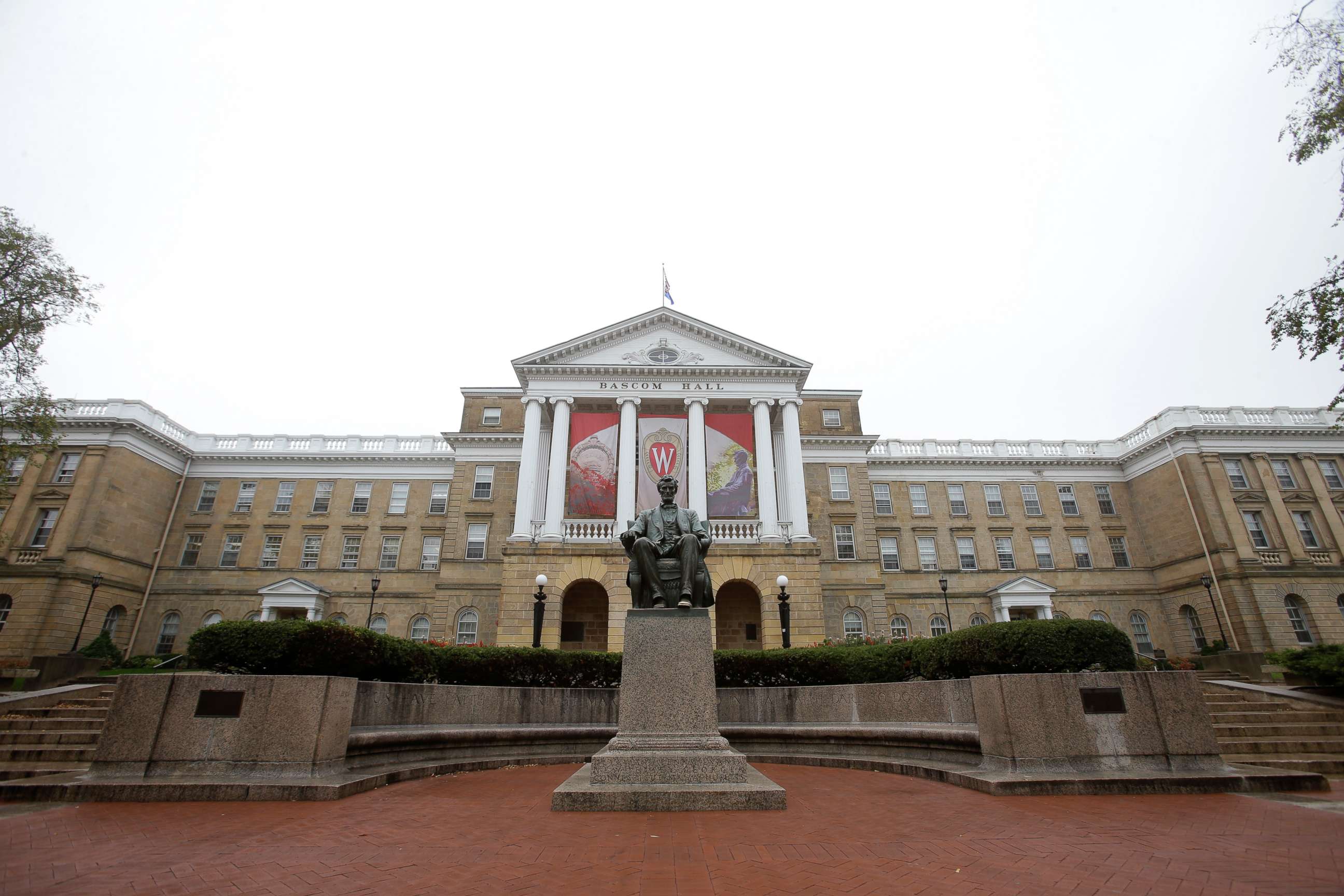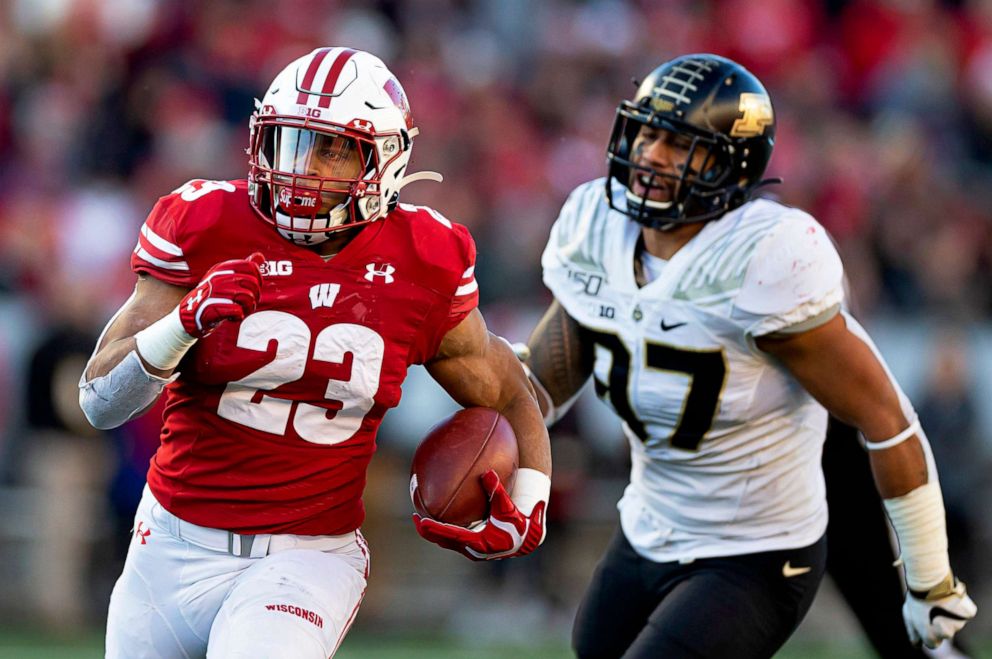As Big Ten decides to return, 42 Wisconsin players and staff have tested positive for COVID, officials say
Local officials warned against gathering for the university's football games.
A day after the Big Ten decided to resume the football season, local officials announced University of Wisconsin, Madison has had over 40 football players and staff test positive for COVID-19 so far.
On Wednesday, the Big Ten Council of Presidents and Chancellors announced that the conference's football season will resume next month, after previously voting to postpone it until the spring. That same day, officials in UW-Madison's county released a statement advising students and people living in Dane County, where the university sits, not to gather to watch Badger football games.
"Of course it's disappointing that something as well-loved as gathering to watch Badger football games can't happen this year," Janel Heinrich, director of Public Health Madison & Dane County, said in the statement. "But the reality is that it's not possible to have a traditional football season without substantially increasing COVID-19 transmission. We value people's health and lives over sports, and we hope that UW does as well."
Since students began returning to campus in late August, the university has seen a "record" number of cases, Dane County Executive Joe Parisi noted in the statement. UW-Madison has paused in-person instruction for two weeks, through Sept. 25, to address a "rapid increase" in COVID-19 cases among students living both on and off campus. Parisi warned that festivities around football Saturdays "are going to serve as new spreading events within our community."
The city's mayor voiced similar concerns. "The increase in cases we are seeing is predominantly due to parties. Adding football parties into this mix is only going to make the situation worse," Madison Mayor Satya Rhodes-Conway said in the statement.

On Thursday, UW-Madison reported 190 new positive COVID-19 tests among students and employees from on- and off-campus testing. As of Thursday morning, 400 students were in on-campus isolation, it said. There have been nearly 2,400 confirmed cases among UW-Madison students and employees since July 28, according to Public Health Madison & Dane County.
As of Wednesday, 42 players and staff on the football team had tested positive for COVID-19, noting the risks posed to student-athletes during the pandemic, according to the county health department. "Emerging evidence and research is showing that even though athletes recover from COVID-19, serious long term health issues can persist, including myocarditis, an inflammation of the heart muscle, which can lead to heart failure," the statement said.
The university started testing student-athletes and staff in June.
New medical protocols announced by Big Ten officials this week include daily antigen testing for student-athletes, coaches, trainers and others on the field for practices and games. The 14 Big Ten institutions will also establish a cardiac registry to examine the effects on COVID-19-positive student-athletes, they said.
In its statement, the county health department said it does not have authority over the university's campus, including Camp Randall football stadium, but that it will continue to enforce its public health orders in partnership with the Madison Police Department when it can. Per an executive order, mass gatherings indoors are limited to 10 people, and those outside are limited to 25, not including employees.

UW spokesperson Greg Bump said in a statement to ABC News that the university would "further coordinate with local agencies and public health regarding game days."
"Saturdays at Camp Randall will look very different," the statement said, noting that Big Ten officials are not allowing any fans in the stands or public ticket sales. The university is currently working on plans to allow the families of student-athletes to attend the games, Bump said.
"Game day usually means getting together but now, in order to protect the season and our community, we all need to cheer the Badgers responsibly and in accordance with public health guidelines," the statement said.
The Big Ten has yet to release the schedule for the season, which is set to start the weekend of Oct. 23.




